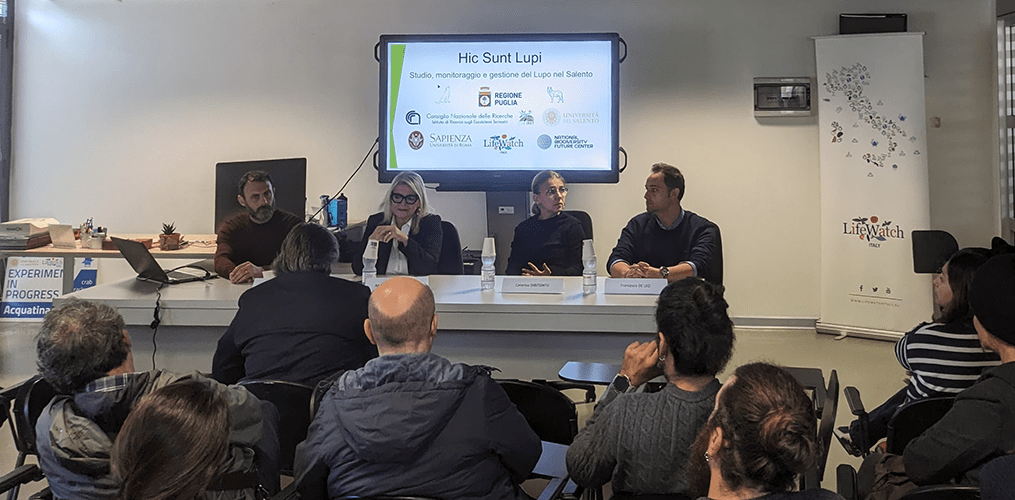
“Hic sunt leones“, although historically unclear, is an expression used in cartography to describe unexplored, unknown territory. Similarly, the Hic Sunt Lupi project aims to understand the causes of a hitherto unknown situation: the wolf’s return to Salento (Italy).
Partners of this project are Regione Puglia, CNR-IRET, and the Sapienza University of Rome, which will implement it with the support of LifeWatch Italy, the National Biodiversity Future Center and the University of Salento.
In recent years, people have spotted several wolves in the Salento area. However, gathering data and understanding the situation better is crucial before taking any measures to manage this phenomenon. Where do they come from? Have they crossed with dogs?
Thanks to this project, researchers will start investigating and answering these and other questions. Data collected throughout the project will be hosted and made accessible to the scientific community through LifeWatch Italy web services, such as its Data Portal and MetaData Catalogue. Moreover, the Italian Node of the Research Infrastructure will also support citizens’ engagement thanks to its Citizen Science platform, where data coming from people’s observations will be collected, validated and hosted.
Why this project matters
“The wolf has a crucial role in local ecosystems” – explains Francesco Cozzoli, CNR-IRET researcher. Its presence can help renature heavily anthropised habitats in Salento. Also, it controls the populations of wild or feral animals like wild boar. Although it can be a catalyst for ecotourism, the presence of large carnivores can create management issues.
Francesco De Leo, researcher at the CNR-IRET, says it’s crucial to comprehensively understand the local situation: “The wolf is a mammal that adapts to changes in its environment, including its diet and habits”. This knowledge will be the foundation for an informed and effective management plan.
Therefore, the Hic Sunt Lupi project will systematically monitor the Salento area to determine the wolves’ demography, distribution and diet, mainly through photo-trapping and scat collection. This phase is aimed at mapping wolves’ population in the area. Furthermore, studying their genetics will help to understand their origin, most likely the nearby Apennines. Also, the analysis will provide information on their family structure and the degree of hybridisation with domestic dogs, thanks to molecular analysis technologies and spatial modelling.
“In an era in which human beings have colonised a large part of the habitats of wildlife, the issue of coexistence with large predators, such as bears and wolves, arises with increasing urgency. The latter has started re-populating Salento and its presence is arousing curiosity and concern. In order to find a solution, we need to put aside prejudices and ideologies and rely on research, on science. This is why I strongly wanted this project.” – says the regional Councillor for Environment, Anna Grazia Maraschio – “The first step we can take is to know, in as much detail as possible, its presence in the Salento area, so that we have the necessary tools for any assessment”.